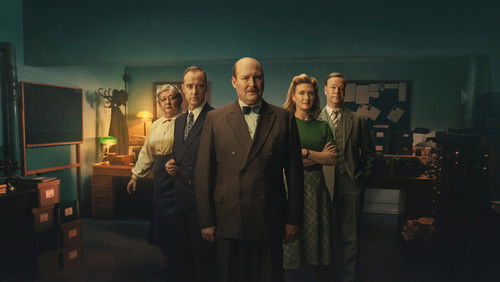Shura no mure (1984)
40KShura no mure: Directed by Kôsaku Yamashita. With Hiroki Matsukata, Wakako Sakai, Shigeru Amachi, Masaharu Arikawa.
“Translated as The Story of a Man Among Men, Shura no mure is an historical melodrama tracing the development of a Yokohama-based yakuza group from the mid-1930s to recent times through the rise of one member, Inahara, from initiate to boss. The film has some pretensions of being a serious historical document with brief narrated intervals and references to specific events and circumstances, and it does give a bit of the feeling of the social changes people experienced at the time, but ultimately it is a three-hankie bromance. The protagonist Inahara has vowed revenge on the system that deprived his family of their home and honor through his fatheru0026#39;s gambling addiction, and he takes that revenge not by defeating the gamblers but by becoming the boss of them. That is a point of logic I cannot pretend to comprehend. Inahara emits honor and manliness like a pheromone, causing men to plead for the boon of becoming his follower. There are women, a few, but their purpose is to be devoted to their men. The real emotional relationships here are between men and their pride, honor and manliness.Their sincerity and mutual devotion brings more than one very masculine tear to the eye before the story is told. These are gangsters, not hoodlums; keepers of order, protectors of the innocent, the childrenu0026#39;s friend. There is an occasional implication that there might be some sort of criminal activity involved, but what we see is that they run gambling and thatu0026#39;s it. Their violence is reserved for disorderly louts who are slapped down with a few swift moves, to the general approval of grateful bystanders, or for extensive brawls with their rivals. This is not The Godfather; the brawls are more in keeping with the martial arts tradition with violence only occasionally so grotesque as to provoke startled laughter, and while it is a fairly well-produced film it never creates enough feeling of realism to break out of the realm of stagy formulaic melodrama. There are no real surprises and anyone who has watched movies for a while can easily call the shots long before they happen. Ultimately the film appears to be the story of the Yakuza as they imagine themselves; guardians of tradition and men of honor, gangsters but somehow not really criminals. I would not be surprised at all to learn that the film was funded entirely by Yakuza, a vanity piece and public relations project. It is an entertaining fantasy and culturally educational, but at times a bit absurd in its dedication to avoiding the reality of drugs, prostitution and brutality which is the true basis of organized crime. Fans of Japanese cinema will recognize many familiar faces from similar films of the samurai and yakuza genres, and overall it is entertaining and enjoyable, but more for its exaggerated melodrama than for its historical or social accuracy. Donu0026#39;t kill yourself trying to find it, but if genre film is your thing, you could do a lot worse than to watch this.”









